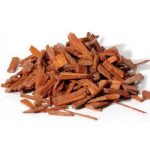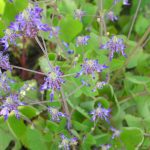1. Karingali
Scientific Name : Acacia catechu
Common Name: Karingali
Medicinal Properties:
- The tree’s seeds are a good source of protein.
- The extract of the plant called catechu is used to treat sore throats and diarrhea.
- In Ayurveda, plant pacifies vitiated pitta, kapha, skin diseases, cough, pruritus, and obesity.
- Useful in tooth ache, increases the strength of teeth.
Useful Parts : Bark, Heartwood,
2.V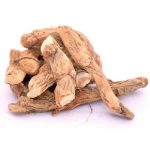 ayambu
ayambu
Scientific Name: Acorus calamus
Common Name: Vayambu
Medicinal Properties:
- It is widely employed in modern herbal medicine as an aromatic stimulant and mild tonic. The root has been used as a rejuvenator for the brain and nervous system and as a remedy for digestive disorders.
- It is used internally in the treatment of digestive complaints, bronchitis, sinusitis etc.
- In Ayurveda, plant pacifies vitiated vata, kapha, insomnia, insanity,cough, inflammation, arthritis, kidney diseases, hemorrhoids, skin diseases and general debility.
Useful Parts: Underground rhizomes.
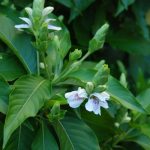
3. Adalodakam
Scientific Name: Adathoda beddomei
Common Name: Adalodakam
Medicinal Properties:
- The extraction of leaf is a good medicine for Asthma and cough.
- It is a good medicine to stop internal and external bleedings like bleeding gums, piles and peptic ulcers.
- According to Ayurveda, it is a good ingredient in decoctions for all types of fever due to kapha and pitta doshas.
- It is expectorant, antispasmodic and good blood purifier.
- It speeds up the child birth.
Useful Part: Whole plant.
 4.Koovalam
4.Koovalam
Scientific Name: Aegle marmelos
Common Name: Koovalam
Medicinal Properties:
- The tree is one of the most useful medicinal plants of India.
- All parts of this tree-stem, bark, root, leaves and fruit at all stages of maturity have medicinal virtues and have been used as medicine for a long time.
- The fruit is aromatic, cooling and laxative.
- It arrests secretion or bleeding.
- The unripe or half-ripe fruit is good for digestion. It is useful in preventing or curing scurvy.
- It also strengthens the stomach and promotes its action.
- In Ayurveda, plant pacifies vitiated kapha, vata, body pain, poison, diarrhea, dysentery, vomiting, and intermittent fever.
- Pulp of unripe fruit is constipating whereas that of ripened fruit is laxative.
- Leaves cure diabetes, cough, inflammation and asthma.
Useful Parts: Leaves, Root, Fruits
 5. Kolinji
5. Kolinji
Scientific Name: Alpinia galangal
Common Name: Kolinji
Medicinal Properties:
- It is used against rheumatism, bronchial catarrh, bad breath and ulcers whooping colds in children, throat infections, to control incontinence and fever.
- It is a stimulating aromatic and has been successfully employed to aid the digestive process, preventing fermentation and removing flatus.
- It is useful in case of dyspepsia, preventing vomiting or sickness of the stomach and facilitating digestion.
- It may be used in all cases in which a stimulating aromatic is indicated.
- It also possesses tonic and antibacterial qualities and is used for these properties in veterinary and homeopathic medicine.
Useful Parts: Roots
 7.Chemmaram
7.Chemmaram
Scientific Name: Aphanamixis polystachya
Common Name: Chemmaram
Medicinal Properties:
- The plant specially the bark is used as astringent and applied on swelling after a fall.
- It is also used in spleen, liver diseases, tumour and abdominal complaints.
- Seed-oil is used in rheumatism.
- In recent times anti carcinogenic ingredients are found from this plant.
Useful Part:
- Bark
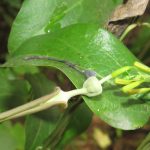 8. Karalakam
8. Karalakam
Scientific Name: Aristolochia indica
Common Name: Karalakam
Medicinal Properties:
- In Ayurveda, plant pacifies vitiated kapha, vata, poison, skin diseases, intestinal worms,
colic, arthritis and ulcers.
Useful Part:
- Whole plant.
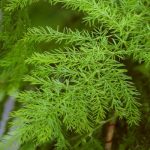 9.Sathavari
9.Sathavari
Scientific Name: Asparagus racemosus
Common Name: Sathavari
Medicinal Properties:
- It helps to balance hormonal system of women and regulates menstruation and ovulation.
- It is also useful for decreasing morning sickness, infertility, menopause, leucorrhoea,
inflammation of sexual organs, and general sexual debility. - The male reproductive system will also benefit from sathavari. It can be used in cases of
sexual debility, impotence, spermatorrhoea, and inflammation of sexual organs. - The powdered dried root of sathavari is also used in Ayurveda for dyspepsia.
- The herb is also useful in gastric ulcers, hyperacidity, dysentery, bladder infections,
chronic fevers, rheumatism, inflamed membranes of the lungs. - It also used as a nervine tonic and is good for heart.
- It also strengthens and increases muscle tone and increases general body strength and
used as an Aphrodisiac in India.
Useful Part:
- Tuberous Roots
 10.Kanikonna
10.Kanikonna
Scientific Name: Cassia fistula
Common Name: Kanikonna
Medicinal Properties:
- Ayurvedic medicine, it is known as aragvadha, meaning “disease killer”.
- Its fruit pulp is used as a mild laxative, against fevers, arthritis, vatavyadhi (nervous system
diseases), all kinds of rakta-pitta (bleeding, such as hematemesis or hemorrhages), as well
as cardiac conditions and stomach problems such as acid reflux. - The root is considered a very strong purgative, and self-medication
Useful Part:
- Whole Plant
 11.Maramanjal
11.Maramanjal
Scientific Name: Coscinium fenestratum
Common Name: Maramanjal
Medicinal Properties:
- Eye and skin diseases, inflammation, wounds, ulcers, abdominal disorders,
jaundice, diabetes, fever, general debility, skeletal fractures. - In Ayurvedic medicine, plant pacifies vitiated kapha, vata, skin diseases, diseases
of the eye, inflammations, wounds, jaundice, diabetes, fever and general debility.
Useful Part:
- Stem.
 12.Neermathalam
12.Neermathalam
Scientific Name: Crateva magna
Common Name: Neermathalam
Medicinal Properties:
- Roots, leaves and the skin of the bark are used for edema, cervical adenitis, rheumatism
and spleen enlargement. - The bark acts as an appetizer, cholegogue, laxative, vermicide, tonic, anti-inflammatory
and its decoction is taken internally for the same diseases above, plus tumors, liver
disorders, anorexia, fever and also mixed with ghee for flatulence. - In Ayurvedic medicine, plant pacifies vitiated vata, kapha, renal and vesical caliculi,
asthma and bronchitis.
Useful Parts:
- Leaves, Bark

